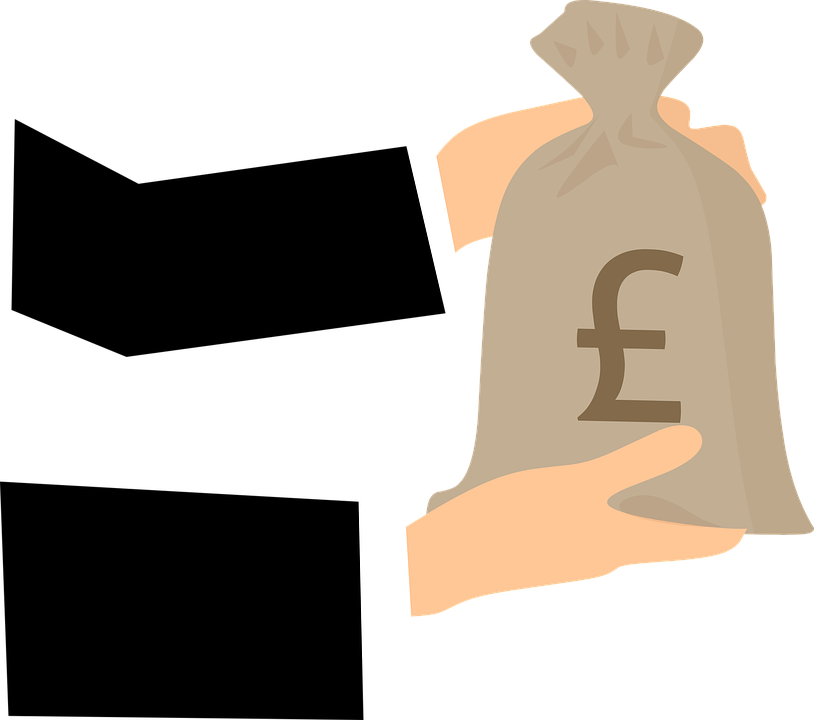In the old days, family and friends were the primary sources of financial aid, even if approaching them seemed overwhelming. Banks, online lenders, and loan apps have replaced the traditional method.
People apply for loans due to several reasons. It is for emergency cash assistance for car repairs or medical bills, debt consolidation, or educational purposes.
With soaring higher education costs, applying for a loan is a feasible option to cover the expenses. Although a student loan is the way to go, getting a personal loan covers additional costs like rent, textbooks, and training programs.
Sometimes, borrowers land in hot waters by accumulating several loans. A personal loan solves the problem by consolidating every loan into a single debt with a fixed interest rate. Getting a loan starts with banks or online lenders providing every necessary detail.
After the loan is approved, funding is provided on the same day or within a few days. Before applying, you must understand the types of loans to avoid issues.
There are several types, from personal mortgages to small business loans, each with a specific purpose. Apart from choosing a particular loan, you must understand a few things before taking the matter to the bank.
For instance, banks in New Zealand are thorough in identifying scams and uncovering bad credit history. Therefore, an individual must have an excellent credit history to acquire a personal loan.
Some quick personal loans by Nectar offer a reasonable interest rate, especially for those with a strong credit history. With that said, let’s discuss the credit history and other factors you must be aware of when applying for a loan.
Credit Score
Getting a loan starts with going through the credit history. A solid credit history saves money, helping you eliminate financial woes. Borrowing money has perks like interest rates directly related to the credit score.
A good credit score makes you eligible to receive the best interest rates. A low-interest rate helps get rid of the debt in a short period.
Compared to the poor credit history that only gets you rejections from banks, a good credit score offers a higher chance of getting loan approval. Apart from that, you also have the leverage to negotiate for lower interest rates.
Banks lend money to trustworthy people who value timelines. Depending on your income and credit score, there is a specific limit to how much you can borrow. Although some with bad credit history might get loan approval, there are a few system-imposed restrictions.
Besides loan approvals, having a good credit history allows access to various rewards. One of those rewards includes getting the best introductory offers. On average, applicants must have a score somewhere between 500 and 700.
Debt-to-Income Ratio
Before issuing a loan, financial organizations evaluate your budget and creditworthiness by using the debt-to-income ratio. The process ensures these organizations that you will pay off your debts on time.
The ratio expresses the borrower’s portion of income that goes into monthly debt service and is calculated in percentage. Debt-to-income ratios are of two types front and back end. The front end measures the cost regarding income.
The front-end ratio is calculated by dividing the monthly mortgage payment, private mortgage insurance, and home loans by gross monthly income.
Compared to the front, the back-end ratio is a comprehensive calculation that includes debt obligations like a credit card. What makes a good debt-to-income ratio is the type of loan you are looking for. Depending on the lender, a higher or lower cut-off is offered.
Application Process
The primary step of borrowing money from lenders starts with filling out the application form. You are requested to provide all the necessary documents depending on your loan type. Documents include financial statements for the recent and the previous years.
Some lenders initially start the process with a credit check. After providing the documents, the next step is loan underwriting. You work directly with an underwriter who verifies the credibility of the submitted documents. These professionals thoroughly analyze the cash flow and other pertinent financial information.
An underwriter guides you throughout the process by understanding the current circumstances and future goals. Once the loan is approved, the final phase of the application process is the loan closing.
A loan closing specialist signs the required documents, including the Note, Deeds of Trust, and security agreement. After doing so, the funds are distributed, and signed copies of the documents are given to the lender and applicant.
Contact us today to discuss Business Loans and how we can assist you..
Down Payment
While purchasing a loan, you pay a portion of the price, known as the down payment. The amount depends on the amount you are willing to pay. Some believe the more extensive the down payment, the better, while others prefer making a small payment.
The benefit of the bigger down payment is that it minimizes the loan amount with low-interest rates. With large down payments, you are less likely to suffer financially during tough times. You are more likely to establish a significant amount of equity with large down payments.
One of the primary reasons people prefer a small down payment is that there is no limitation on the amount needed. Small down payments are beneficial for saving money for emergency reserves or fulfilling other financial priorities.
When buying a home, the deposit fee must be 20% of the home’s value. Those interested in investing in residential properties must pay the deposit fee of 40% unless the particular property of interest meets the exemption criteria. Your application is reviewed before approval if the fee is less than 20%.
Interest Rates
Before applying for a loan, understand the interest rate and why it matters. In layman’s terms, the interest rate is the price you pay for borrowing money. The general rule of thumb is when paying back the original borrowed amount, you back a specific loan amount in percentage as interest.
A few exceptions, like monthly full credit card balance payments, exempt borrowers from paying interest rates. People with a solid credit history are at an advantage of receiving favorable interest rates.
The interest rate borrowers pay depends on the duration of the loan and whether the rate is fixed or subjected to change. Several factors are crucial to determining interest rates. These include credit history, income, credit reports, and the loan timeline.
Loan Tenure
The time given to repay the loan depends on a few things. The first step is to analyze your finances and your monthly income. Subtract the monthly financial commitment from your income to determine the amount you can pay for the loan EMI.
The amount calculated is directly related to the loan tenure. With larger amounts, you need more time to pay interest. Along with the loan, also calculate the interest rate the lender charges.
You can also pay off your loan even before the tenure is complete. However, keep in mind the pre-payment penalty you pay to the lender. It would be best to weigh your options and only consider the pre-payment option when you have sufficient funds.
Conclusion
Financial crises can descend upon you at any time. While many set-aside funds for challenging times, some need financial help. In such circumstances, applying for a loan is the most feasible option.
Several reasons contribute to loan consideration, from medical expenses to home renovation and relocation. Those who want to seek a loan must understand the nitty gritty. First and foremost, decide the type of loan you wish to apply for because each type is specific to your financial needs.
After doing so, understand the debt-to-income ratio, down payments, and the documents required to fill out the application form.
Source: Financial Investor







